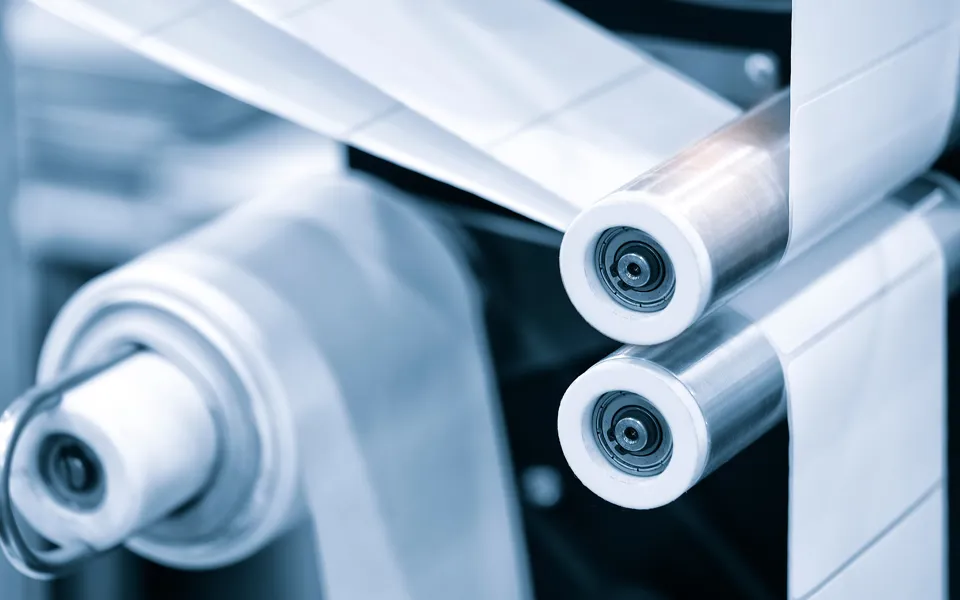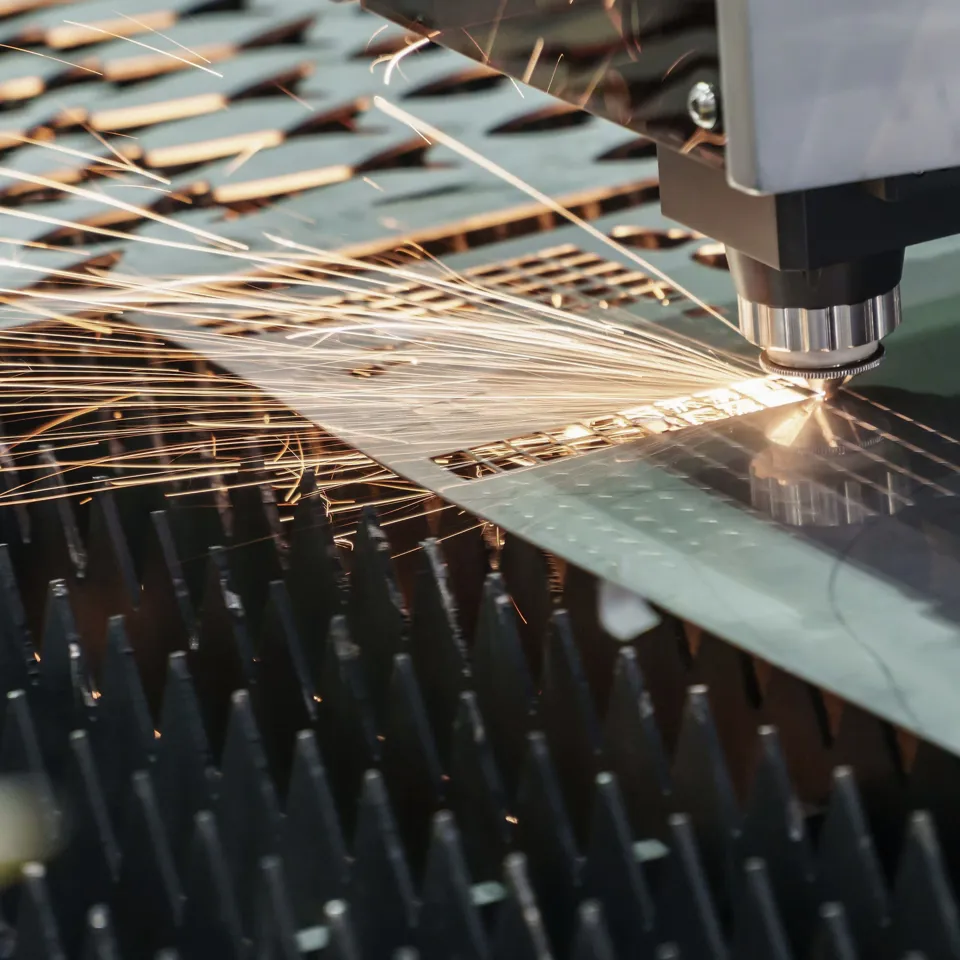New product introduction (NPI) service
Successfully navigate the challenges of bringing a new product to market with our New Product Introduction services.

Ricardo's New Product Introduction (NPI) service is helping our clients to bring their specialised products to market from concept through to niche volume production and beyond. We offer a bespoke solution tailored to the unique requirements of our clients and their product.
We use our proven tools and processes to help businesses from start-ups to multi-national OEMs to successfully develop, launch, and scale up the production of their specialist products. No matter the size of your organisation, we are with you every step of the way to help you realise the production goals for your niche-volume and complex products.
There are eight key skills that ensure that manufacturing is planned effectively:
- Process engineering
- Design for assembly
- Design for manufacture
- Quality assurance
- Supply chain management
- Project leadership
- Launch readiness
- Troubleshooting
It these are essential to ensuring that the NPI process is successful, especially for companies producing complex products at niche volumes.
The Ricardo team ensure that these core skills are weaved through our New Product Introduction process to ensure the success of our clients’ products.

How we deliver our NPI service
Ricardo provides balanced and trusted technical guidance to help our clients to develop and implement your New Product Introduction strategy in a way that is tailored to their requirements.
Our support is both technical and commercial. It combines expert knowledge of operational manufacturing processes with strategic business insight you need to succeed.
We work collaboratively with you, to understand your issues and develop a solution ready for you to implement, or for us to fulfil if you prefer.
Ricardo's unique approach enables us to:
- Develop solutions to new product introduction challenges
- Help our clients to implement new processes
- Ensure that the new processes fit within the wider ecosystem of the organisation
- Provide an in depth troubleshooting service
- Provide project management and engineering implementation services
- Deliver training solutions on new processes
Answering your FAQs about New Product Introduction
Need answers about your New Product Introduction strategy in a hurry? We've collated some of the most frequently asked questions that our NPI experts receive about all aspects of the New Product Introduction process.
New Product Introduction (NPI) is a proven, systematic, and repeatable process of taking a new product from concept to through to production. It helps businesses in every industry bring new products to market efficiently, quickly, and cost-effectively without falling into the known traps and challenges often encountered when trying to ramp up and scale supply from concept to repeatable series production.
New Product Introduction (NPI) and New Product Development (NPD) are complementary processes but have different deliverables and outcomes.
New Product Development deals with the concept generation, design, validation, and commercialisation of a product. This requires creative input and a trial-and-error attitude. The goal of NPD is to demonstrate that the product can be produced and sold profitably.
New Product Introduction focuses on the steps involved in the manufacture and launch of a new or improved product. The process includes supply chain management, quality assurance, and de-risking the launch of a product. It is systematic, repeatable, and is more structured than NPD.
Businesses need to bring new products to market efficiently, quickly, and cost-effectively. However, there are known challenges that many companies experience when they try to ramp up and scale production.
Traditional mass production ramp-up methods are not enough to handle modern-day challenges associated with niche volume supply such as rapid development and short product life cycles. High levels of complexity – driven in part by a significant growth in architecture solutions – and heavy reliance on the integration of multiple systems impact on both product design and manufacturing.
NPI is generally industry-agnostic and will help growing businesses ramp up as effectively as possible without compromising cost or quality. It de-risks product development by applying real-world knowledge and experience. This is particularly important for production ramp-up which has the potential to impact cashflow negatively and incur significant ongoing costs.
Organisations of all sizes operating in a wide range of sectors will benefit from an NPI framework, from start-ups in the early- or pre-revenue phase, to mature businesses looking to add to an existing product portfolio.
NPI enables any company bringing a new product to market to look strategically at the processes and techniques required to move an innovative concept from drawing board to factory.
However, there are several business cases where an NPI framework is particularly useful. These include:
- Businesses looking to break into new markets
- Businesses looking to adopt new technologies
- Businesses needing to support new technology requirements
- Businesses needing to support new customer demands
- Businesses needing to rapidly increase production output
- Businesses requiring supply in volumes outside the usual rate of supply for their existing demands
Almost every new or enhanced product in development, in all industrial sectors, will benefit from NPI. However, niche or specialised products with a high degree of complexity which are to be manufactured at low volumes will particularly benefit from NPI.
NPI facilitates activity and designs out cost, risk and unnecessary complexity throughout a product’s life cycle. The NPI process has a positive impact at every stage, for example:
- modifying a design to ease production
- avoiding unnecessary equipment purchases
- ensuring a quality assured product that doesn’t fail in the field
- securing a robust supply chain for future upgrades
The key benefits to implementing an NPI framework are:
- enhanced quality of the product
- increased production efficiency
- reduced risks
- minimised waste
- improved speed to market
- money saved through the application of real-world knowledge and experience
- significant increase on ROI, ROCE and profit
The investment needed to industrialise a new product in all sectors is significant and demands a high level of planning and process. New Product Introduction aims to enhance quality, increase production efficiency, reduce risks, minimise waste, improve speed to market and save money through the application of real-world knowledge and experience.
A robust NPI process will solve the biggest immediate challenges facing businesses seeking to introduce new or enhanced products. One of the biggest benefits is that it can help overcome the challenges of production ramp-up. This phase, which comes before series production , is when operations have begun but revenue has not been generated. Implementing an NPI process can mitigate that early dip in project cash flow popularly known as the ‘valley of death’ and achieve the fastest cash to cash cycle possible.
Ricardo’s approach to NPI is tailored to the specific needs and demands of the customer, their situation and the market they operate within. We can offer the whole package, or just one element of it depending on the client’s requirements. Agility is key to the way we work, to focus on and resolve the most critical issues while accepting that the parameters may change as a project proceeds.
Ricardo’s New Product Introduction Process is made of up 5 stages:
- Phase 0 - Concept study: early consideration of manufacturing feasibility to give a clear indication of launch readiness.
- Phase 1 - Planning for industrialisation: start of production planning, creation of critical function leadership team, supply chain engagement, pricing model for low volume production, support for the initial engineering design.
- Phase 2 - Industrialisation: pre-production activities to enable low-volume production ramp-up
- Phase 3 – Low and niche volume production supply: the final phase for many niche manufacturing clients when the product enters low-volume production
- Phase 4 - Transition to high volume production: phase-out of low volume capability, phase-in of high-volume capability, assurance of production supply to anticipated levels, supply chain management.
Find out more about the New Product Introduction Process
You may face challenges with the whole process of developing a new product from concept to final form or already be underway and unsure of the next steps to take.
Ricardo’s approach to implementing an NPI framework is to begin by discussing the goals and challenges of our customer’s plan for manufacturing. We highlight potential risks and key focal points. We work collaboratively with you, to understand your issues and develop a solution ready for you to implement, or for us to fulfil if you prefer.
You can book a consultation with Ricardo to discuss your New Product Introduction challenges.
New Product Introduction is a cross-functional activity and who is involved will change at different stages of the process.
For example, process engineers will be increasingly involved from concept through to launch. Supply chain management will be heavily involved during design and validation into the launch phase. And quality assurance will be involved from the design phase through to the start of production.
The two constants throughout are project leadership and troubleshooting functions to ensure the process remains on track, on budget and runs to schedule.
A business considering introducing a new or enhanced product needs to begin by asking a number of key questions:
- What is my product?
- What are my capabilities?
- What is the target time to market?
- What is my product development strategy?
- What is my growth strategy?
- Where are the risks in my supply chain and manufacturing and assembly process?
This exercise, supported by detailed gap analysis, is likely to highlight previously unconsidered factors. These are the starting points for a successful NPI deployment.
Ricardo’s approach to New Product Introduction (NPI) starts by discussing the specific problems identified from the above exercise, along with the overall plan for manufacturing, then working collaboratively to develop solutions ready for you to implement, or for us to fulfil if you prefer.
AIt is never too late to implement a New Product Introduction process, but it is best to begin very early in the product’s lifecycle to give maximum impact and minimise ongoing investment.
For new companies producing physical products, it is essential to put in place a robust New Product Introduction (NPI) framework and align it with the expected volume and quality outputs the product will require.
At the concept phase, assessing feasibility of manufacture is vital to give a clear indication of readiness for launch. This will appraise the key manufacturing requirements including a review of processes, supply chain and risks.
Completing this assessment early will define the steps to be taken later in the programme. It will ensure that early design concepts are aligned with the available manufacturing technology to minimise design re-work at later stages.
It is not always necessary for a product to go through every stage of the NPI process. Different products, markets and organisations will have different requirements.
Traditional production ramp-up methods are not always aligned with the agile, rapid development that innovative new entrants apply. For this reason, Ricardo’s approach to NPI places a premium on agility to support the needs of niche volume markets.
Our approach to NPI is tailored to the specific needs and demands of the customer, their situation and the market they operate within. We can offer the whole package, or just one element of it depending on the client’s requirements. It’s about being as detailed as necessary and as pragmatic as possible while identifying and focusing on the issues that are a priority.
Bringing a new product to market depends on careful planning and implementation throughout its life cycle, from optimising design through to supply chain management and industrialisation.
Even with a NPI framework in place, product development can encounter obstacles at any stage – common reasons include:
- Lack of consistency across the NPI processes
- Poor project management and inadequate resourcing
- Weak cross-functional collaboration
- A manufacturing process unable to achieve desired ramp-up volumes
- Product quality problems
- Supply chain scale-up
All these challenges have a negative impact on your key NPI success criteria: time to market, cost, performance, and quality.
Sometimes it’s difficult to pinpoint exactly what the issue is. This is where experienced, objective analysis can pay dividends. Ricardo’s approach to NPI can be tailored to whether you need help to troubleshoot a particular phase or advice on key parameters such as consistency of process and cross-functional collaboration. It’s about being as detailed as necessary and as pragmatic as possible, while identifying and focusing on the issues that are a priority.
If you are in this position, you can book a consultation with Ricardo to discuss your New Product Introduction challenges.
Faced with new technology and increased complexity, irrespective of market sector, an engineering consultancy and niche volume manufacturing specialist like Ricardo can provide balanced and trusted technical guidance.
Ricardo can help you to develop and implement your New Product Introduction strategy in a way that is tailored to your requirements.
To ensure that the NPI process is successful for companies producing complex products at niche volumes, we deploy a number of best-in-class production tools and techniques acquired over many decades in the stringent and demanding automotive sector.
Our support is both technical and commercial: it combines profound knowledge of ‘nuts and bolts’ operational manufacturing processes as well as strategic business insight. We work collaboratively with you, to understand your issues and develop a solution ready for you to implement, or for us to fulfil if you prefer.
We specialise in New Product Introduction for complex or specialised products manufactured at low or niche volumes. Our proven approach to NPI is based on industry best practices gained from work on a wide range of projects related to production optimisation of critical and complex products and processes.
Our track record in niche volume, high-quality manufacturing and assembly programmes for the most demanding automotive and motorsport sectors means we can incorporate into our New Product Introduction process first-hand experience of the challenges of ramping up.
Our 3,000-plus engineers, environmentalists and hands-on manufacturing experts understand the total landscape, with the ability both to go back to basics and look forward to the endgame. As a result, our clients receive robust and supported solutions.
Our manufacturing experts bring technical knowledge from traditional mechanical engineering design and problem solving, as well as from optimising manufacturing output. They are versed in the tools and techniques that solve live manufacturing problems from the supply chain to assembly on a global scale: process engineering; design for assembly and quality management.
Commercially, we add value in those areas that have an operational impact: ensuring the supply chain is aligned to clients’ strategy; negotiation of contacts; helping a client build a supply chain; analysing business plans; and helping understand the cost benefit of different investment or technology choices.
Our consultancy is focused on solving key manufacturing challenges. And our methodology is to be as detailed as necessary and as pragmatic as possible.
New product introduction (NPI) service Resources
Exploring Ricardo's battery assembly and facility build services
Read articleNPI Checklist: How to get started with new product introduction
Read articleWhy use Design for Manufacture and Assembly (DfMA)?
Read articleIn conversation with Julie Fream and Leslie Bednarz
Watch videoBook a meeting with one of our consultants
Can't see this form? Email us here




















